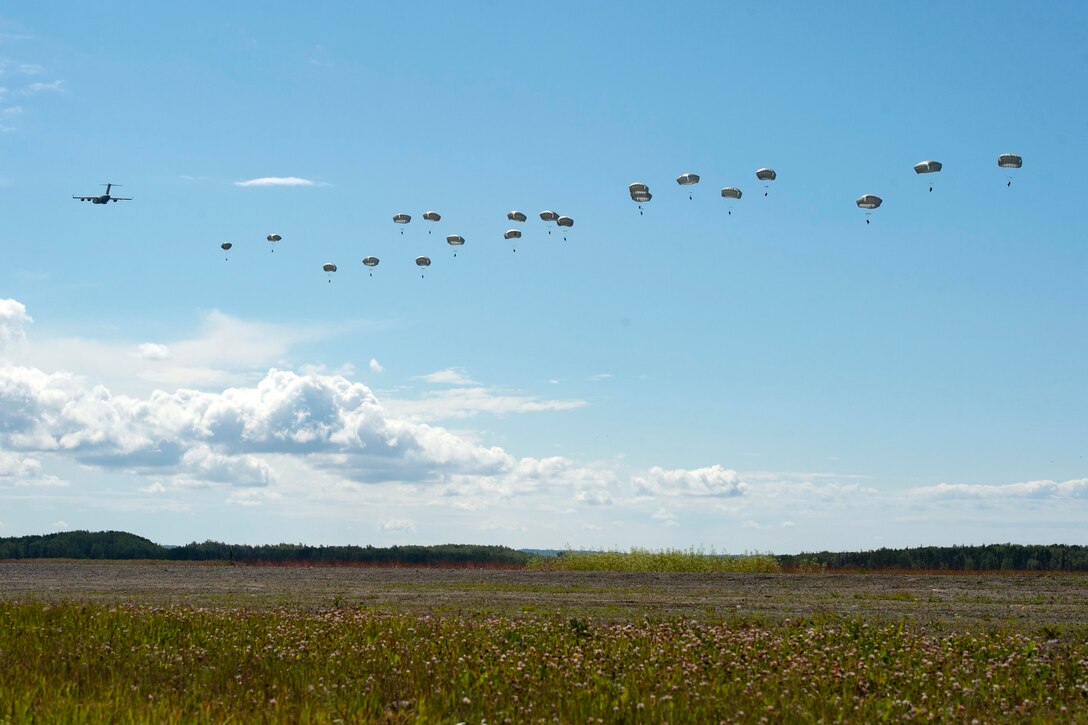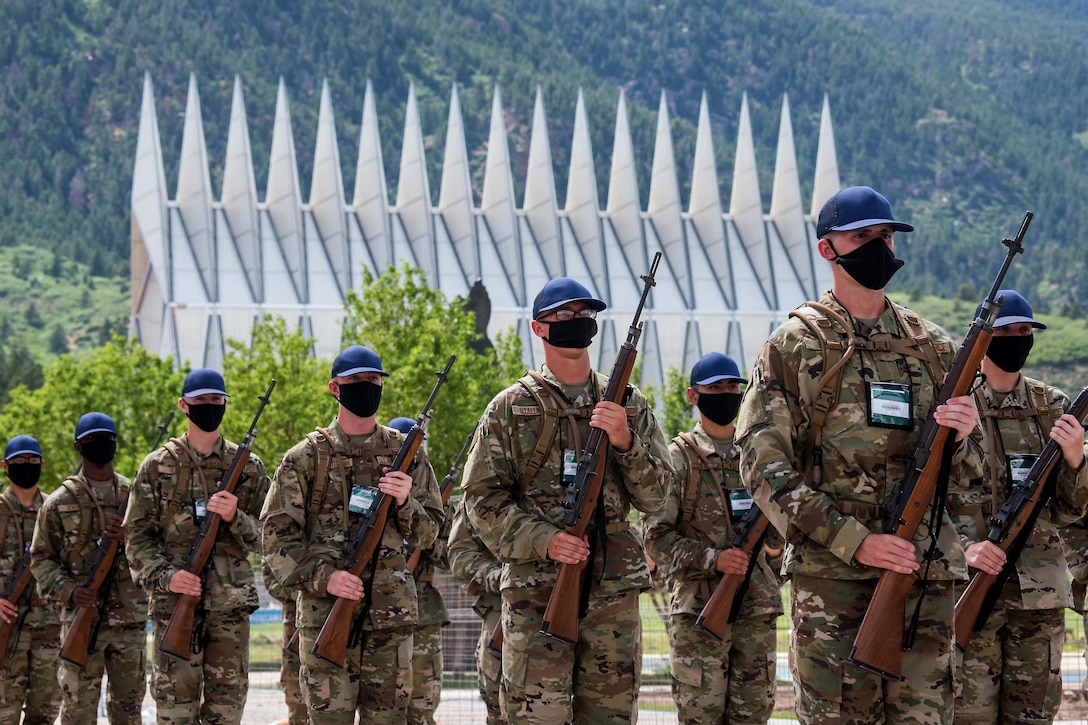Army paratroopers jump from an Air Force C-17 Globemaster III over Joint Base Elmendorf Richardson, Alaska, July 10, 2020, as part of JBER Salutes, a two-day event to show appreciation to service members, nearly 100 Anchorage-area “COVID Heroes” and their guests.
Providing up-to-date information, news and original content on American Military issues.
Monday, July 13, 2020
Michigan Guardsmen Conduct Free COVID-19 Testing
"For the past couple of months, we've been assisting with COVID-19 testing across the state with prisons, long-term care facilities, community events and even soldiers for pre and post [annual training] testing," said Army Sgt. 1st Class Emanuel Mosley.
As the platoon sergeant for the task force within the 272nd Regional Support Group, Mosley was in charge of all the teams at the Cadillac testing site. All of the soldiers want the participants to feel as comfortable as possible while taking the test, he said.
"Any way I can help, it doesn't matter what it is, if I'm able to assist anything to ease that anxiety that people may have," Mosley said. "I understand this is a dynamic that no one ever experienced before, unless you're over 100 years old. This is something different that the world has to deal with, and I support it all the way. As long as I'm here to help, I'll do what I can."
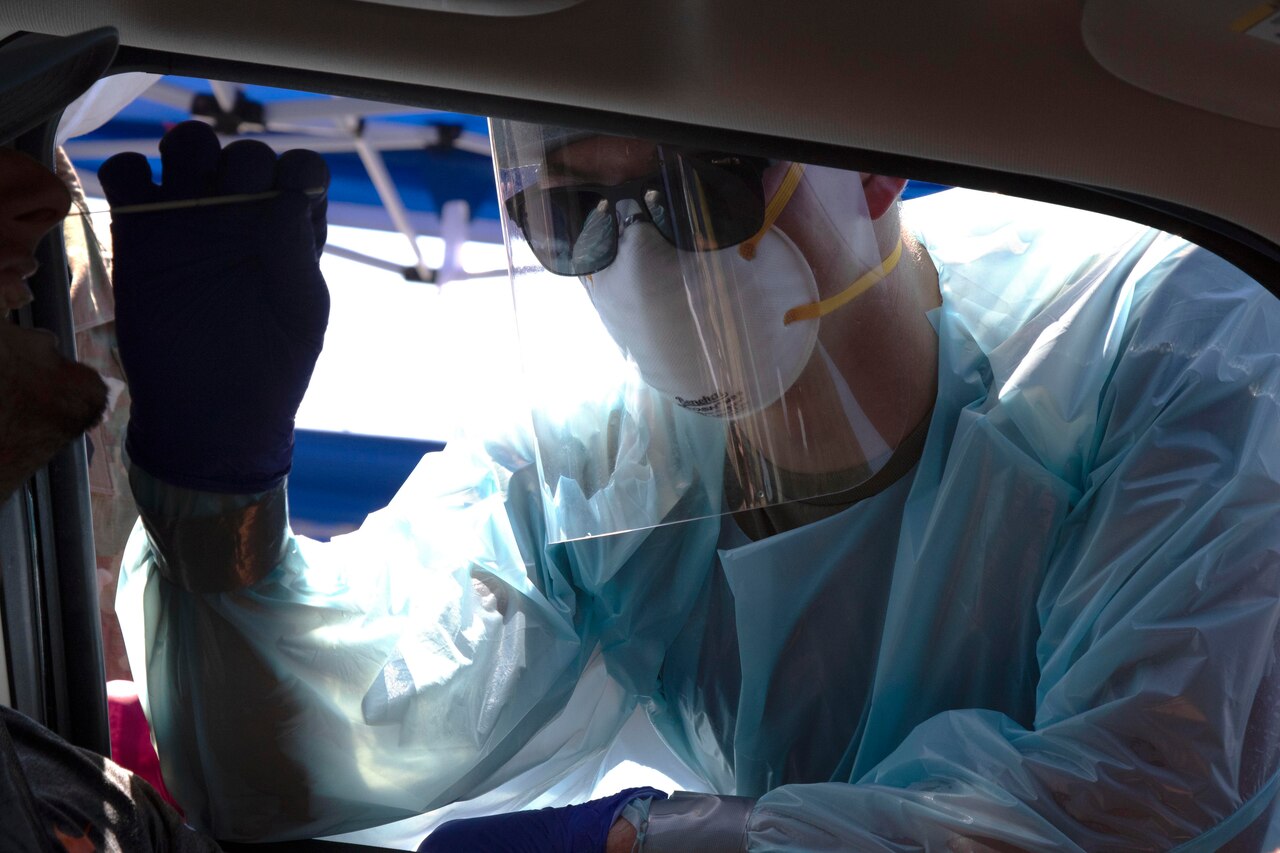
For Mosley, this means talking with the citizens, explaining what they are doing and just easing the pressure they may be feeling. He said he hopes the participants will go and tell others, so they will be more inclined to get their own test done.
Testing the communities is just the current stage of the task force's mission. They started out testing prisoners and then moved onto testing long-term care patients. They are still delivering testing kits to any long-term care facilities that request them.
"I enjoy this,' Mosley said. "Having more than 19 years in, and being toward the end of my career, this is something different. This virus hit the world unexpectedly, and we were called up to participate. This has been great, and we've been enjoying ourselves as well as learning new things."
After so many years in the guard, this is the first time Mosley has participated in a state relief effort. But some guardsmen, like Army Pvt. Tyler Stone, were greeted by the pandemic straight out of the gate.
"It definitely threw me in the deep end, but I love it," Stone said. "I'm actually really glad I get this opportunity, because things like this don't come along that often. I'm just really glad I got out of training in time for this, and that I was able to help in any way that I could."
Stone completed his advanced training to become a medic a month before he was called up to be on this mission. He did not even have the opportunity to attend his first drill before he started performing tests across the state.
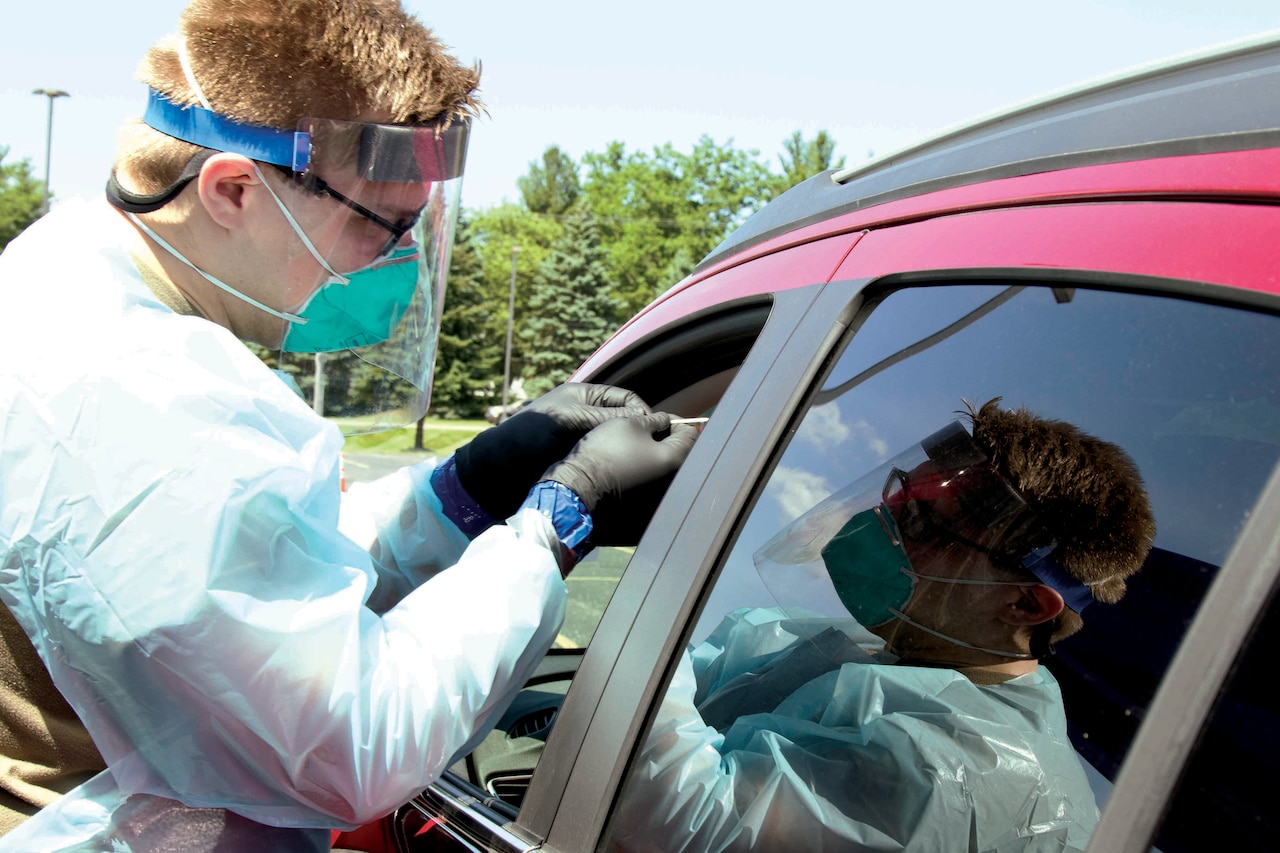
"Since we've opened, we've had nonstop people coming in, which is just fantastic because that's what we're here for. We love to see a big crowd," Stone said. "We love to help the community in any way we can."
Although the testing was conducted in the middle of the week, the turnout was far greater than expected. Task Force 182nd normally operates testing sites on the weekends, but for this one, they had old and young coming through, along with a young adult baseball team coming after practice.
"After doing this I think I will appreciate what the National Guard does even more, because a lot of people don't really understand all that we do," Stone said. "Getting to be out here and actually working to make a difference in my community is great. I've loved every second of it. I think enlisting was the best decision of my life."
Whether it comes at the beginning of a career or at the end, the soldiers who are conducting the COVID-19 tests really appreciate what they are doing. After conducting more than 60,000 tests, the teams with Task Force 182nd are making a difference all around the state.
(Army Staff Sgt. Tegan Kucera is assigned to the Michigan National Guard.)
Pennsylvania National Guard Augments State's Incident Management Team
PEMA officials realized early that this response would be larger and more complex than prior responses, explained Army Maj. Jim O'Shea, the Pennsylvania National Guard’s emergency preparedness liaison officer for PEMA and the domestic operations exercise officer.
''So, one of the first augmentations they asked for were planners from the Pennsylvania National Guard,'' O'Shea said. “The Pennsylvania Guard is frequently mobilized to assist in emergencies like snow storms or flooding event. But those responses are often limited to a few counties for a few days.
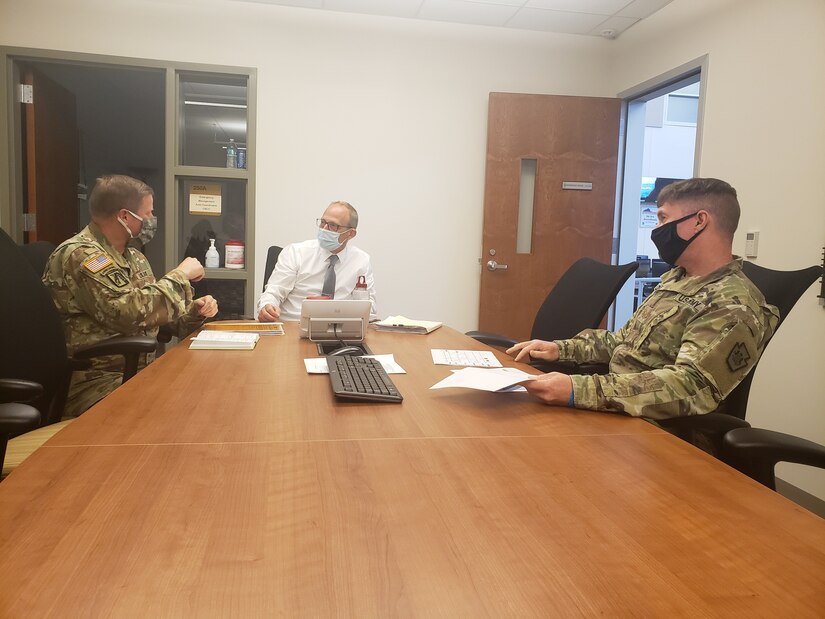
''We are always ready to assist with troops that can provide capabilities like transportation as well as providing liaisons [at PEMA] and at the County Emergency Operations Centers,'' he continued. ''However, we have not previously provided planning support to the state incident management team. For COVID-19, we assisted the IMT as well as provided PEMA and [Department of NHealth] support with the Pennsylvania National Guard military medical planning team.''
Military members — with their experience in dealing with complex, prolonged, fluid and emergency events — are well-suited to assist in planning a large-scale and extended emergency response like COVID-19, said Army Lt. Col. Travis Shick, one of the planners who assisted.
''We don't do anything without formalized plans and analysis,'' Shick said. ''We may not always have the perfect answers, but if you needed planners in a rapid way, mobilizing the Pennsylvania National Guard was the right thing to do.''
Shick is the guard's branch chief for domestic operations, stationed at the joint operations center at Fort Indiantown Gap, the Pennsylvania National Guard’s headquarters. He deployed in 2009 as a brigade planning officer in Iraq and also worked as a division planning officer.
The planners assigned to PEMA were all senior officers with decades of military experience. They were able to assist with modeling expected COVID-19 infection timelines, establishing the five alternate care sites that were located throughout Pennsylvania and assist in other medical and logistics planning support throughout the crisis.
''Since we were available to provide more generalized planning support, we could free these experts up for planning that required their special knowledge,'' Shick said. ''Our presence helped PEMA staff members with specific skill sets, like a physician, work on issues that required their expertise.''
The planners were impressed by the skill of the PEMA personnel they were augmenting, Shick added.
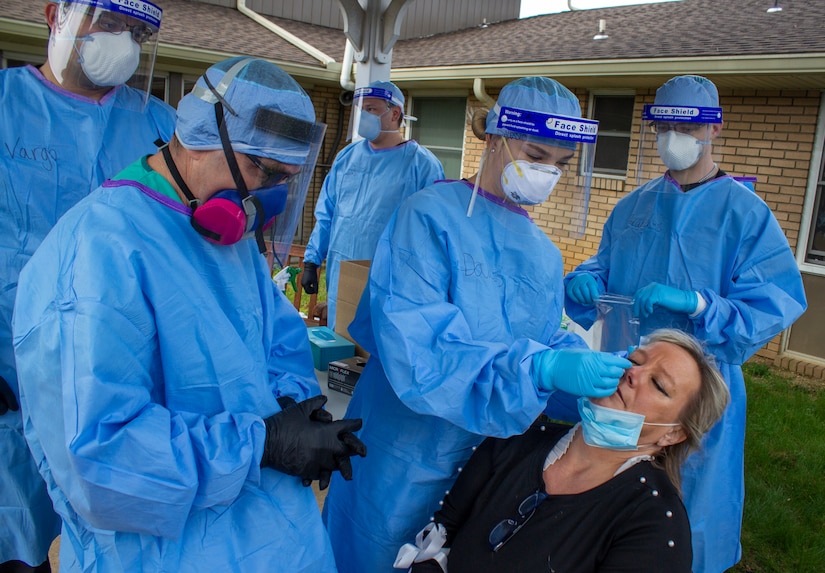
''My biggest takeaway I had was not having had served at PEMA before,'' he said. ''I am extremely confident in their ability to handle emergencies after seeing it firsthand,'' he said. ''The other takeaway was the depth of horsepower PA has for dealing with emergencies.''
Both O'Shea and Shick thought being part of the COVID-19 response was worthwhile.
''You know you are part of something important,'' O'Shea said. ''You are ensuring those first responders and National Guard members on the ground are getting the information they need to help people.''
The guard has continued to provide a broad range of COVID-19 support to PEMA, including assistance at testing sites and nursing homes. Thousands of National Guardsmen nationwide are assisting with the COVID-19 response in a broad array of missions.
The Pennsylvania National Guard is one of the largest and most deployed National Guards in the nation. In addition to its federal mission, the Pennsylvania National Guard responds to domestic emergencies, working with the PEMA, the Federal Emergency Management Agency, U.S. Northern Command and dozens of federal, state and local agencies. The guard maintains a joint operations center at Fort Indiantown Gap staffed by Pennsylvania Guard members 24/7 to support its domestic mission.
(Army Lt. Col. Angela King-Sweigart is assigned to Joint Force Headquarters, Pennsylvania National Guard.)
COVID-19 Sharpened Focus on Trans-Atlantic Security Gaps, Defense Official Says
The COVID-19 pandemic has highlighted a range of security issues that previously hadn't made it into NATO's discussions, a senior Defense Department official said.
Michael C. Ryan, performing the duties of assistant secretary of defense for international security affairs, spoke on NATO and trans-Atlantic security at the Brookings Institution's European Union Defense Washington Forum July 9, participating in the discussion via video from the Pentagon. Ryan also serves as the deputy assistant secretary of defense for European and NATO policy.
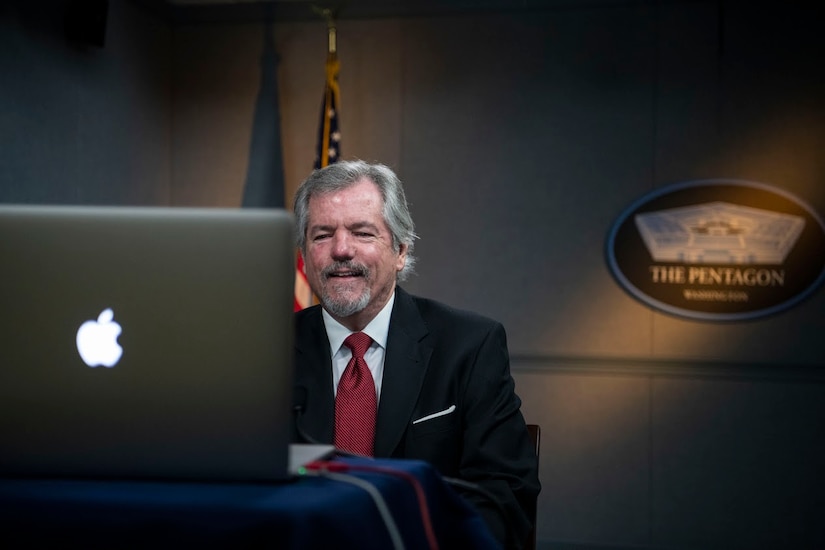
Russia and China already were conducting disinformation campaigns, but the pandemic only accelerated it, Ryan said, noting disinformation in the areas of medicine and diplomacy that were designed to ''sway our populations away from commitments to security, commitments to the alliance and commitments to trans-Atlantic cooperation.''
Harmful foreign investment from authoritarian regimes that don’t share democratic values has also been exposed, he said. Ownership of critical infrastructure by authoritarian regimes can result in that infrastructure becoming unavailable in a crisis, he added.
Also, dependencies on supply chains that are unreliable have clear security ramifications are ''very much on our mind in the Pentagon,'' Ryan said.
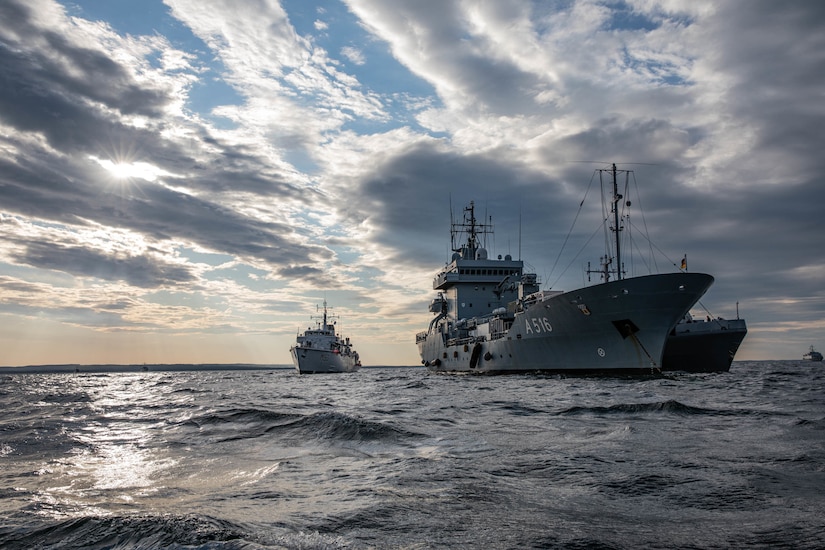
Military readiness and resilience in NATO, while very important, aren't enough — nations also need political, economic and information readiness and resilience, he said.
One other area that needs to be improved, he said, is finding a way to merge law enforcement intelligence with military intelligence. Instead of confronting NATO's military directly, adversaries are conducting criminal activities that diminish trans-Atlantic security, he explained.
At a meeting of NATO heads of state and government held in London in December, leaders reiterated their declaration that NATO is the indispensable forum for trans-Atlantic consultations on security and defense, Ryan said.
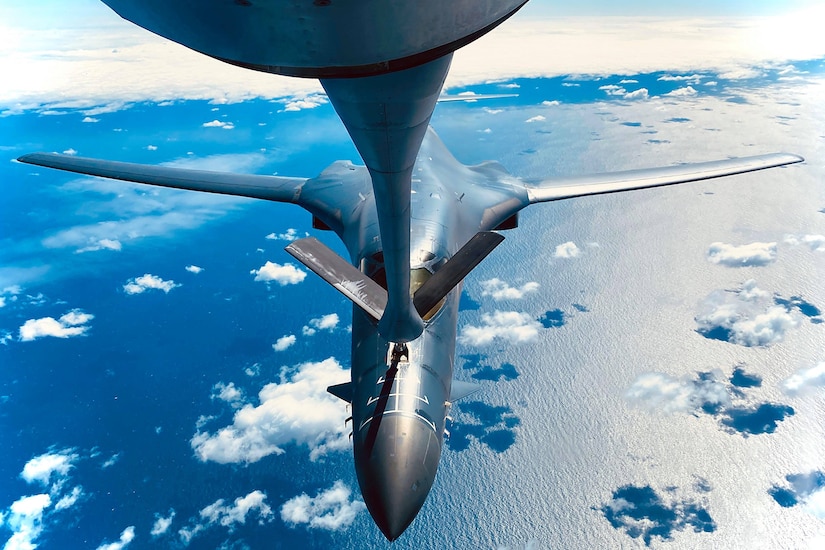
''Those consultations drive decisions in specific areas [that] are absolutely critical for bringing Washington together with allies and partners, and even European Union members who are not NATO members, to move in an effective direction so we can defend consensus, sustain deterrence and be prepared to act in our own defense when necessary,'' he said.
North America and Europe working together cooperatively can deal effectively with any malign influence coming from Russia or China, he added.
Marching Drills
Air Force basic cadets participate in the first phase of their training with marching drills at the U.S. Air Force Academy in Colorado Springs, Colo., July 8, 2020. The COVID-19 pandemic changed the way in which the more than 1,100 basic cadets train because of social distancing and wearing face masks.
